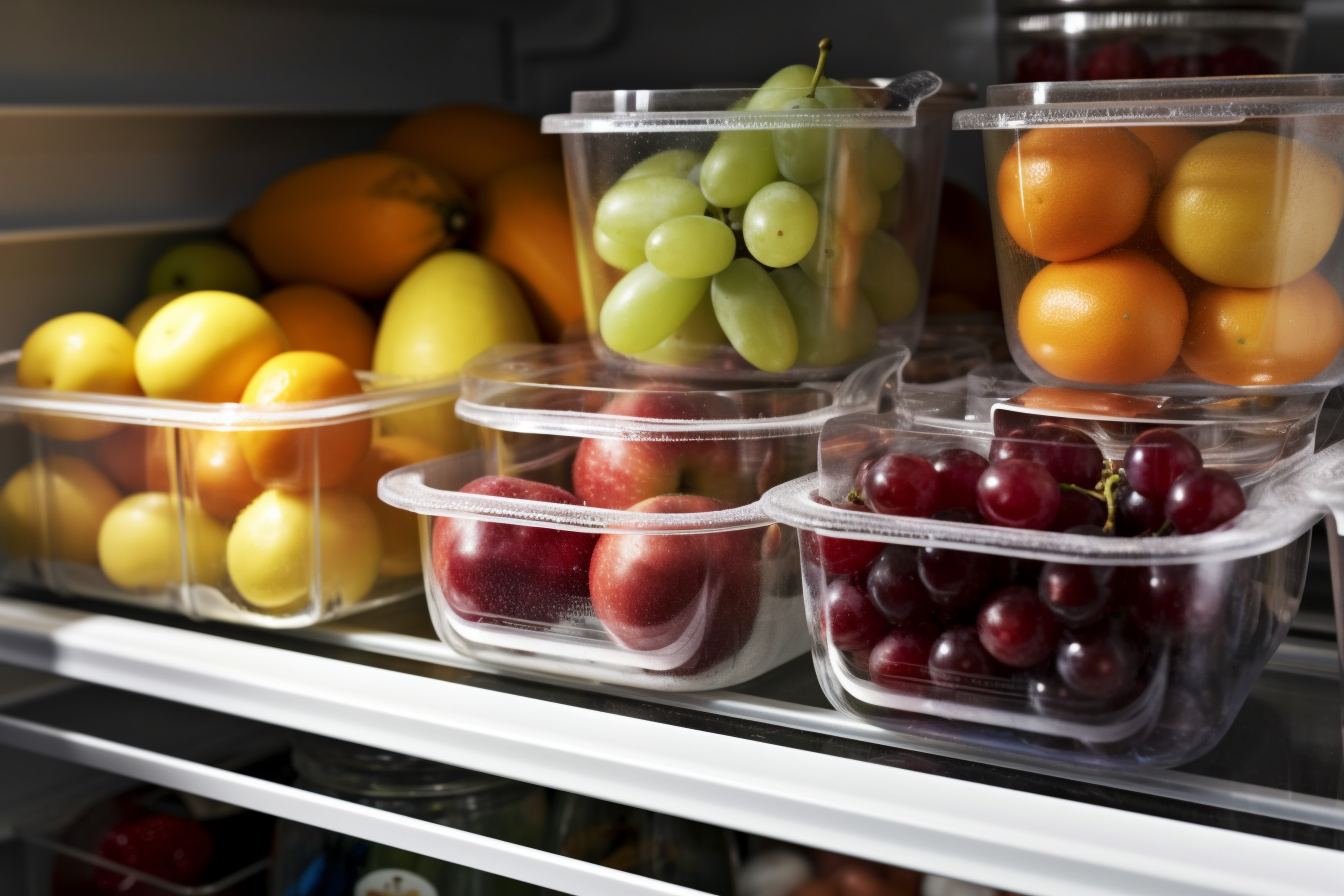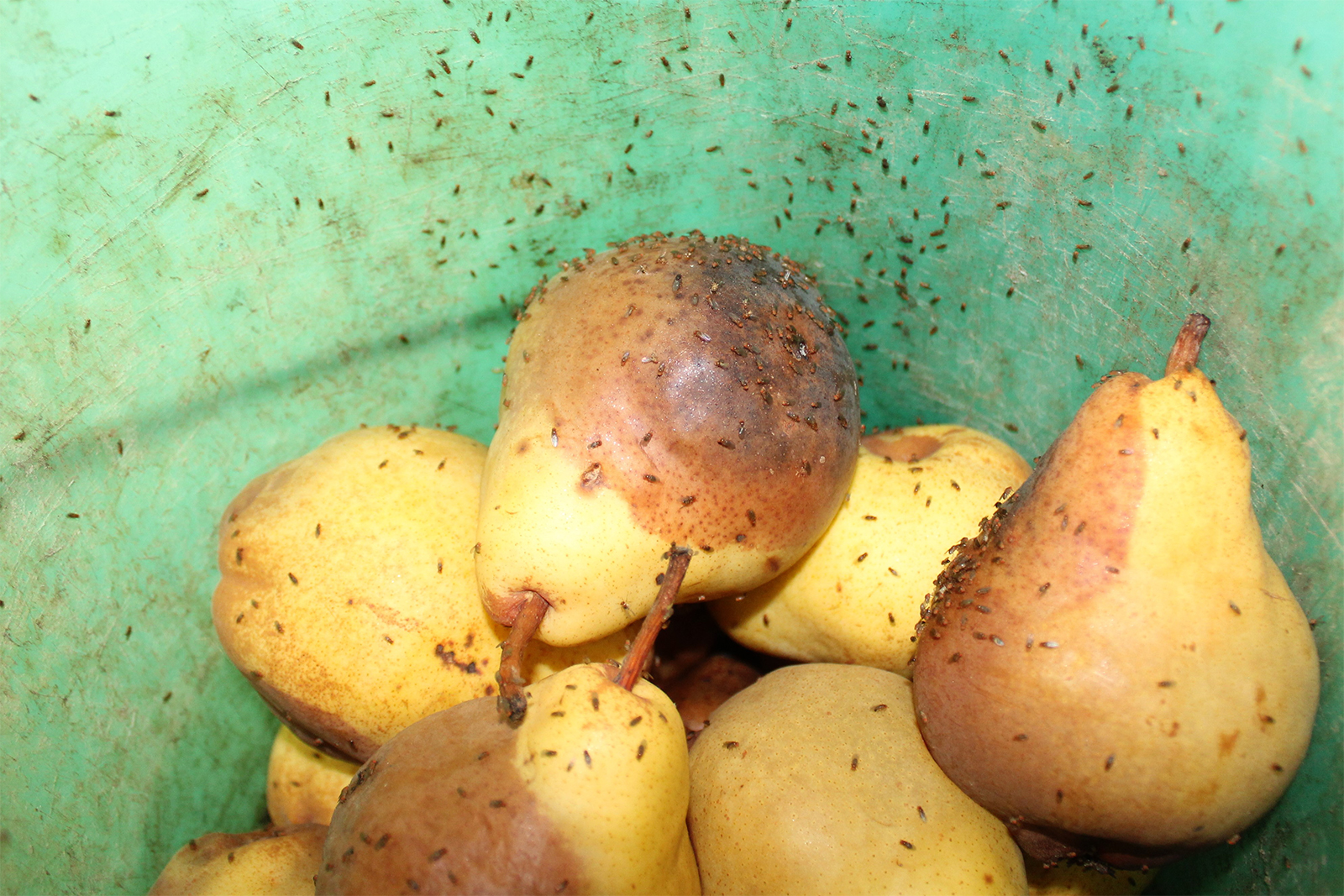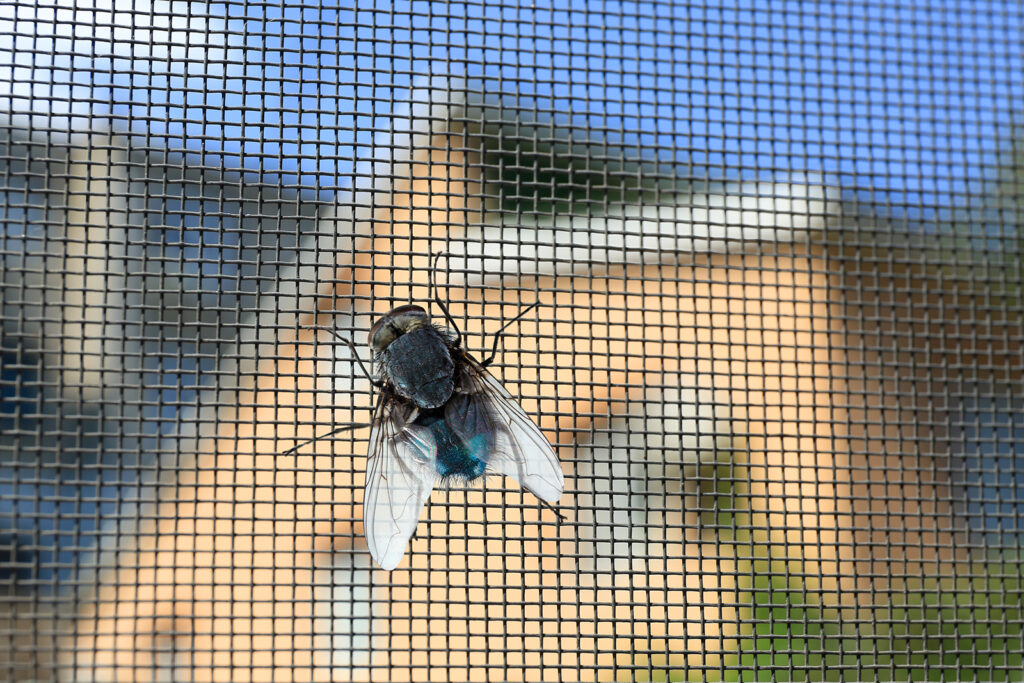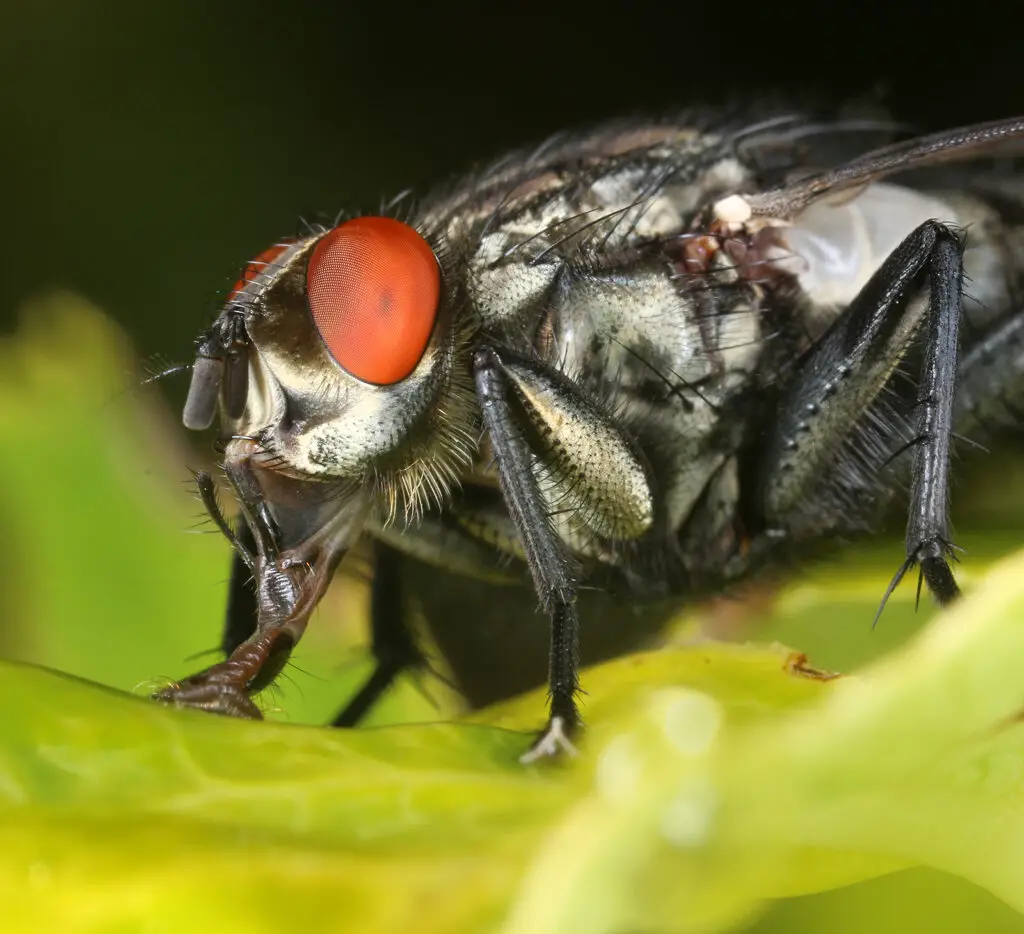
Fruit flies can be a real annoyance in the kitchen, especially when they seem to pop out of nowhere. As most of us keep our fresh fruit and vegetables in the fridge, it’s only natural to wonder whether or not our food is safe from these harmful pests.
Fruit flies can survive the cold temperatures of a fridge, having been shown to survive at temperatures as low as -4 degrees Celsius for up to 24 hours provided they have access to food and water.
Fruit flies are attracted to ripe, fermenting, and rotting fruits and vegetables, which makes our refrigerators the perfect environment for them to thrive. However, the question remains: can they withstand the cold temperatures inside our fridges, and how much of a problem are they?
Overview of Fruit Flies
Fruit flies are small insects belonging to the family Drosophilidae. Commonly found in homes, they are attracted to ripened fruits and vegetables as well as fermenting products.
Life Cycle
The life cycle of a fruit fly consists of four stages: egg, larva, pupa, and adult. Females can lay up to 500 eggs on the surface of fermenting foods or organic matter. These eggs hatch into larvae within 24-30 hours, feeding on the food around them. After several days, the larvae pupate for a short period – typically around 4 to 5 days – before emerging as fully grown adults. Adult fruit flies have a lifespan of about 40 to 50 days, during which they continue to reproduce, completing the cycle.
Habitat
Fruit flies are incredibly adaptable creatures that prefer warm and moist environments. They can be found in kitchens, compost piles, garbage bins, and even refrigerators, where they are attracted to the scent of fresh fruits and vegetables. Even though the refrigerator’s cold temperatures slow down their metabolism, fruit flies can still survive and will enter a state of hibernation called “diapause,” which reduces their metabolic rate by 90%.

Temperature Effects on Fruit Flies
Cold Temperature Survival
Fruit flies can survive in cold temperatures, but their ability to do so depends on the specific conditions. According to Pest Queen, fruit flies have been shown to survive at temperatures as low as -4 degrees Celsius. However, inside a refrigerator, the temperature is typically below the point at which fruit flies can survive for very long.
Interestingly, in writing this article I learned that cold temperatures can significantly affect the lifespan of common fruit flies. Below 60 degrees Fahrenheit their lifespan decreases sharply, while temperatures below 53 degrees Fahrenheit inhibit their development entirely.
Impact on Reproduction and Development
Regarding fruit flies’ reproduction and development, cold temperatures play a crucial role. Although cold temperatures might inhibit their development, it may not necessarily kill the eggs and larvae already present on fruit. According to HomeSteady, eggs and larvae might continue their previously arrested development once they warm up again.
This ability to survive in cold temperatures allows fruit fly populations to persist through frigid conditions and start the next generation when favorable conditions return.
Your Fridge Environment and Fruit Flies
Fridge Temperature and Humidity
Typically a fridge maintains a cool environment, with temperatures ranging from 35°F to 40°F (1.6°C to 4.4°C) and a relative humidity of around 70%. However, these conditions do not necessarily mean an inhospitable environment for fruit flies. In fact, they can survive in the fridge for up to six to eight hours, according to StoryonFridge.
Food Sources Inside the Fridge
Another factor that comes into play is the availability of food sources for fruit flies inside the fridge. As most of us know, fruit flies are attracted to warm, moist environments, and they eagerly seek out fresh fruits and vegetables, which are often stored in refrigerators. In addition to fresh produce, fruit flies can also be drawn to sweet smelling items and leftover food particles in the refrigerator.
However, there is a silver lining. The short amount of time that fruit flies can survive in the fridge can work to our advantage. By keeping the fridge clean and removing any potential food sources before fruit flies have a chance to reproduce or lay eggs, we can minimize the likelihood of a fruit fly infestation within the fridge.
Preventative Measures
Here are several preventative measures to maintain a pest-free environment.
Proper Food Storage
One of the best strategies I found is proper food storage. Fruit flies are attracted to ripe and decaying fruits and vegetables, so started sealing them in airtight containers before storing them in the fridge. This minimizes the availability of food sources for these pests and reduces the chance of an infestation. Make sure to discard any rotting produce and wipe down your countertops to remove possible fruit fly eggs or larvae.
Fridge Maintenance
An essential part of preventing fruit flies in the refrigerator is regular maintenance. Inspect your fridge for any signs of infestation, such as fruit flies or larvae, and clean it thoroughly. It’s also essential to let the fridge dry out after cleaning since fruit flies thrive in humid conditions.
Additional Prevention Methods
Aside from proper food storage and fridge maintenance, there are a few extra preventative measures I encountered:
- Control indoor humidity: Using a dehumidifier and an air conditioner helps maintain low humidity levels, which slows down fruit deterioration and affects fruit flies’ reproduction (The Spruce).
- Keep doors and windows closed: Fruit flies are tiny and can slip through window and door screens. Keeping them closed serves as a better deterrent.
- Use traps: If fruit flies are noticed in or around the fridge, quick-acting homemade traps like vinegar and dish soap, or wine traps can be used to catch them. This can help keep their population in check (Home Care How).
By implementing these preventative measures you’ll keep your fridge free from fruit flies and maintain the freshness of your fruits and vegetables.
Conclusion
Fruit flies can indeed survive in the refrigerator by entering a state of hibernation called “diapause,” which slows their metabolic rate by 90%. This key piece of information is crucial for understanding how to efficiently manage a fruit fly infestation, as they will continue to reproduce and contaminate food even when inside the refrigerator.
Be proactive in preventing these unwanted guests from invading your fridge in the first place by regularly cleaning and inspecting your refrigerator, as well as properly sealing and storing your fruit and vegetables. This will significantly reduce the risk of fruit fly infestations.
Ultimately, maintaining a clean and well-organized refrigerator, along with being vigilant in monitoring fruit storage, will minimize the risk of encountering fruit flies and help ensure a safe and healthy living environment for me and my family.
Driven by a passion for those tiny creatures that rule our world, we at Bug Domain strive to be your go-to resource for information on insects.



